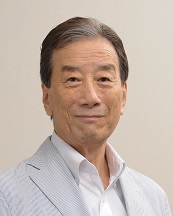Greetings from Dr. Kiyoshi KUROKAWA, Chairperson of the Hideyo Noguchi Africa Prize Committee
May 2022
Probably every Japanese person knows the name of Hideyo Noguchi. He was a Japanese pioneer in the study of medicine in Africa. Before explaining the Hideyo Noguchi Africa Prize, I would first like to look back on the life of Dr. Hideyo Noguchi, from whom this prize originated.
The life of Dr. Hideyo Noguchi
Born in Fukushima, Japan, in 1876, Noguchi suffered a burn on his left hand by falling into the fireplace at his family’s home when he was only one. It was believed that his left hand would never function again; however, at the age of 15, he underwent surgery and mobility was restored to his hand. Noguchi was so impressed by the results of the operation, and the dedication of his surgeon, that he decided to become a doctor himself and devote his life to helping others in need. Due to the affectionate support of his mother, Shika Noguchi, and his ceaseless efforts, he was able to achieve his goal of becoming a doctor. He further moved on to implement activities internationally, receiving support from many others.He went to the United States in 1900 and first studied at the University of Pennsylvania. Then, after studying in Denmark, he joined the Rockefeller Institute for Medical Research in its initial period of foundation, and dedicated himself to research on bacteriology. After attracting worldwide attention by announcing that he succeeded in creating a pure culture of syphilitic spirochete in 1911, he started studying yellow fever in 1918. In 1927, he moved to Ghana to study yellow fever that broke out on the western coast of Africa, but became infected with it himself, and passed away at the young age of 51 in 1928 in Ghana.
However, the mindset and achievements of Dr. Noguchi, who dedicated himself to the study of medicine in Africa and who believed in the possibility of medicine despite being born poor and put under adverse conditions, along with his tremendous efforts and passion eventually made international contributions which still encourage and serve as a polestar for many people living today.
The significance and background of the Hideyo Noguchi Africa Prize
Contribution made by Japan to Africa
Dedicated to carrying out the will of Dr. Noguchi, the Hideyo Noguchi Africa Prize has some unique aspects. First, it sheds light on the study of medicine, clinical studies, and medical services for Africa, which have not necessarily received sufficient attention. Second, it is designed to support and reward people on the ground/site who have been taking on challenges involving relevant issues for all of humanity – whether by combating infectious diseases or by improving people’s lives in Africa.Why is Japan engaged in such activities? Japan has been assisting African countries through the Official Development Assistance (ODA)(*1) efforts as well as actively working to resolve various issues in the international field of healthcare, many of which African countries are facing. It can be said that the Hideyo Noguchi African Prize is the symbol of the ideals and philosophy of Japan trying to support the lives and living of people in Africa, and in turn to improve the healthcare and welfare of all humanity. The wish of the government of Japan to encourage people having the same spirit as Dr. Noguchi and to cast a spotlight on people acting with the same passion as Dr. Noguchi in Africa is the motivation for awarding this prize.
In this era where the world is severely affected by the COVID-19 pandemic, a prize to shed light on and to give due credit to the people performing such activities will increase the level of healthcare not only in Africa but throughout the world, making a global impact. I believe that the significance and importance of this prize increased in these two years when countries around the world are struggling to take countermeasures against COVID-19.
The role of the Hideyo Noguchi Africa Prize
The prize awarding ceremony had been held three times since 2008. The past laureates are all wonderful people, and we are delighted to see them still active and continuously achieving admirable accomplishments. Among those laureates, there are some who have utilized the prize honorarium of 100 million yen to establish a scholarship and provide training education for medical practitioners or to implement a new public health project. We strongly believe that the awarding of this prize will raise awareness among the international community on healthcare and welfare in Africa, which had not been drawing sufficient attention in the past, and will further strongly serve the role of promoting medical studies and activities in Africa in the future.The future schedule of the Hideyo Noguchi Africa Prize
In the past, the Hideyo Noguchi Africa Prize was awarded only on the occasion of holding the Tokyo International Conference on African Development (TICAD)(*2) in Japan. However, in TICAD 7 held in 2019, then Prime Minister Abe announced that the Hideyo Noguchi Africa Prize would be awarded every time TICAD is held thereafter. Because TICAD is currently held every three years either in Japan or Africa on a reciprocal basis, the prize will also be awarded every three years. TICAD 8 is scheduled to be held in August 2022, and the laureates of the Fourth Hideyo Noguchi Africa Prize are also scheduled to be announced on that occasion. I have no doubt that wonderful laureates will be awarded, and the spirit of Dr. Noguchi will be further spread around the world through this prize.
Useful Links
*1 Ministry of Foreign Affairs of Japan (MOFA) Japan’s ODA
Ministry of Foreign Affairs of Japan (MOFA) Sustainable Development Goals (SDGs)
*2 Ministry of Foreign Affairs of Japan (MOFA) TICAD
Profile
|
|
|
|
|
|
|
|
|
|
|
|
|
|
|
|
|
|
|
|
|
|
|
|
|
|
|
|
|
|
|
|
|
|
|
|
|
|
|
|
|
|
|
|

